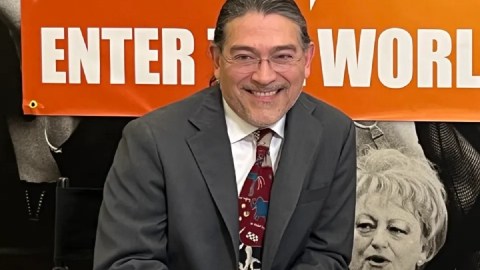“We should recognize and value diversity within Latino groups”, Robert Santos, director of the Census Bureau
"Latinos can be Catholic or Evangelical or Muslim; male, female, or some other gender; impoverished, middle income, wealthy; and, yes, monolingual, bilingual, or multilingual", Director of the Census Bureau, Robert Santos, says to celebrate the Hispanic Heritage Month

Robert Santos, director of the U.S. Census Bureau. Crédito: Impremedia
During this Hispanic Heritage Month, I have been reflecting on my journey of self-identity. All of us have stories that need telling so that we can better understand one another.
My journey commenced before I was born, with my abuelos. Like many families in their generation, my grandparents fled Northern Mexico to avoid the violence of the Mexican Revolution in 1910. They came to San Antonio by simply crossing the Texas‐Mexico border sin papeles. They were refugees. Both of my parents were second-generation immigrants, born in San Antonio, which makes me a third-generation immigrant.
Research suggests what you may already suspect: the percentage of households speaking Spanish at home declines with successive generations. The 2015 Pew Research Survey of Latinos suggests that virtually all first-generation Latino households speak Spanish at home, while the numbers drop to about half by the third generation.
Similarly, American Community Survey data between 2009 and 2019 suggest that native-born Hispanics – myself included— increasingly speak only English at home now, climbing to about 42 percent in 2019. As for me, there was a bit of Spanish spoken in my second-generation home when I was growing up. But my third-generation family – my wife, kids and I – exclusively spoke English at home.
It is precisely this language loss that led to personal conflict in my journey of identity: How could I call myself a Latinx or Mexican American as a monolingual English speaker?
But throughout my life and career, my thinking on identity has evolved. I believe that if we are to be a society that embraces human dignity and human rights, we should celebrate people in the entirety of their varied cultural makeup.
Moreover, we should recognize and value diversity within groups, and in my case, within Mexican-Americans. Latinos can be Catholic or Evangelical or Muslim; male, female, or some other gender; impoverished, middle income, wealthy; and, yes, monolingual, bilingual, or multilingual. Increasingly, we are a nation of mixed races and ethnicities and I love that about us.
Everywhere I look, there are many other Latino voices to be heard and appreciated. In fact, the future of Latino identity will be defined by those who are under the age of 40, who form the majority of the Latino population today.
So, during Hispanic Heritage Month, please join me in celebrating the rich diversity and culture of the many Latino populations that have been bestowed upon our nation. I believe our collective diversity – Latino or otherwise – makes our nation stronger and more special.




